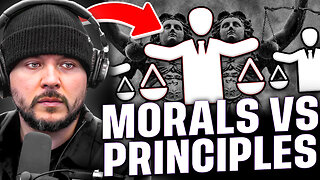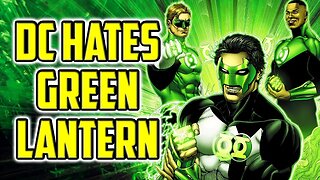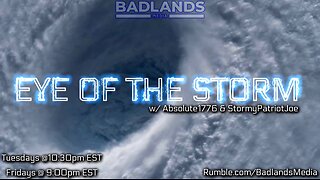Episode 1482: Weep not for me, but weep for yourselves
Luke 19:41-44.
41 And when he drew near, he saw the city, and wept over it,
42 Saying, If thou hadst known, even thou, at least in this thy day, the things which belong unto thy peace! but now they are hid from thine eyes.
43 For the days shall come upon thee, when thine enemies shall cast a trench about thee, and compass thee round, and keep thee in on every side,
44 And shall lay thee even with the ground, and thy children within thee; and they shall not leave in thee one stone upon another; because thou knewest not the time of thy visitation.
In this passage, Jesus is weeping for Jerusalem because he knows that the city is about to be destroyed some 37 years later in 70 AD. He is also weeping because the people of Jerusalem do not know the time of their visitation, meaning the time when God would send his Son to save them.
The destruction of Jerusalem is a fulfillment of prophecy. In the Old Testament, the prophet Ezekiel predicted that Jerusalem would be destroyed because of its sin (Ezekiel 5:1-17). Ezekiel 5:1-17:
1 And thou, son of man, take thee a sharp knife, take thee a barber's razor, and cause it to pass upon thy head and upon thy beard: and take thee balances to weigh, and divide the hair.
2 Thou shalt burn with fire a third part in the midst of the city, when the days of the siege are fulfilled: and thou shalt take a third part, and smite about it with a knife: and a third part thou shalt scatter in the wind; and I will draw out a sword after them.
3 And thou shalt take thereof a few in number, and bind them in thy skirts.
4 And of them again shalt thou take, and cast them into the midst of the fire, and burn them in the fire; therefrom shall a fire come forth into all the house of Israel.
5 Thus saith the Lord God: This is Jerusalem: I have set her in the midst of the nations and countries that are round about her.
6 And she hath changed my judgments into wickedness more than the nations, and my statutes more than the countries that are round about her: for they have refused my judgments and my statutes, and have not walked in them.
7 Therefore thus saith the Lord God: Because ye have multiplied your transgressions more than the nations that are round about you, and have not walked in my statutes, neither have kept my judgments, neither have done according to the judgments of the nations that are round about you:
8 Therefore thus saith the Lord God: Behold, I, even I, am against thee, and I will execute judgments in the midst of thee in the sight of the nations.
9 And I will do in thee that which I have not done, and the like to which I will not do any more, because of all thy abominations.
10 Therefore the fathers shall eat the sons in the midst of thee, and the sons shall eat their fathers; and I will scatter thee in all the winds, and I will draw out a sword after thee.
11 And I will make thee a desolation and a reproach among the nations that are round about thee, in the sight of all that pass by.
12 And thou shalt be a reproach and a taunt, a proverb and a byword, among the nations that are round about thee, when I shall execute judgments in thee in anger and in fury and in furious rebukes.
13 I, the Lord, have spoken it: it shall come to pass, and I will do it; I will not go back, neither will I spare, neither will I repent: according to thy ways and according to thy doings shalt thou be judged, saith the Lord God.
This passage is from the Book of Ezekiel, which is one of the prophetic books of the Old Testament. the prophet Ezekiel is describing the judgment that God will bring upon Jerusalem because of its sin. He describes how the city will be destroyed and its people scattered. He also describes how the people of Jerusalem will be a reproach and a taunt among the nations.
The passage is a warning to the people of Jerusalem to repent of their sin and turn to God. If they do not, they will face God's judgment. The passage also teaches us about the consequences of sin. When we sin, we not only hurt ourselves, but we also hurt others and bring judgment upon ourselves.
The passage is a reminder that God is just and that he will judge us according to our deeds. It is also a reminder that God is merciful and that he is willing to forgive us if we repent.
The next scripture passage is when Christ says “Daughters of Jerusalem, weep not for me, but weep for yourselves, and for your children”
The Bible verse when Christ spoke to the women about not crying for him is Luke 23:27-31.
27 And there followed him a great company of people, and of women, which also bewailed and lamented him.
28 But Jesus turning unto them said, Daughters of Jerusalem, weep not for me, but weep for yourselves, and for your children.
29 For, behold, the days are coming, in the which they shall say, Blessed are the barren, and the wombs that never bare, and the paps which never gave suck.
30 Then shall they begin to say to the mountains, Fall on us; and to the hills, Cover us.
31 For if they do these things in a green tree, what shall be done in the dry?
In this passage, Jesus is speaking to the women who are mourning his death. He tells them not to cry for him, but to cry for themselves and their children. He is warning them of the coming destruction of Jerusalem, which will be a result of their sin.
The phrase "Blessed are the barren" is a reference to the prophecy of Isaiah 54:1:
Sing, O barren, thou that didst not bear; break forth into singing, and cry aloud, thou that didst not travail with child: for more are the children of the desolate than the children of the married wife, saith the Lord.
This prophecy is fulfilled in the New Testament, when the barren woman, Mary, gives birth to Jesus Christ. Jesus is the "child of the desolate" who brings salvation to all who believe in him.
The phrase "Fall on us; and to the hills, Cover us" is a reference to the destruction of Jerusalem in 70 AD. The Romans destroyed the city and killed many of its inhabitants. This destruction was a result of the sin of the people of Jerusalem, who had rejected Jesus Christ as their Messiah.
The message of Luke 23:27-31 is that we should not focus on the death of Jesus, but on the salvation that he brings. We should also be warned of the consequences of sin, and turn to Jesus for forgiveness and salvation.
BUT also and maybe even more importantly Traditional Catholic scholars say that Jesus's words "For if they do these things in a green tree, what shall be done in the dry?" (Luke 23:31) are a warning to the people of Jerusalem. The "green tree" refers to Jesus, who is innocent and righteous. The "dry tree" refers to the people of Jerusalem, who are sinful and deserving of punishment.
Jesus is saying that if the people of Jerusalem can do such terrible things to him, an innocent man, they will surely do even worse things to those who are guilty of sin. This is a warning to the people of Jerusalem to repent of their sins and turn to God.
The Catholic Catechism explains this passage as follows:
"The green tree represents Christ, the innocent and just one, who suffers unjustly at the hands of his enemies. The dry tree represents the sinful people of Jerusalem, who will be punished for their crimes. This passage is a warning to all people to repent of their sins and turn to God." (CCC 607)
The destruction of Jerusalem in 70 AD is seen by many Christians as a fulfillment of Jesus's prophecy. The Romans destroyed the city and killed many of its inhabitants. This destruction was a result of the sin of the people of Jerusalem, who had rejected Jesus Christ as their Messiah.
The message of Luke 23:31 is that we should all repent of our sins and turn to God. If we do not, we will face the same punishment as the people of Jerusalem.
Can we update this to our times? Could our very own Catholic church be returning to the 1st AD? Have we rejected Christ a 2nd time and does our fate line up the same?
In the third secret of Fatima, the Blessed Mother reportedly said that "the good will be martyred; the Holy Father will have much to suffer; various nations will be annihilated." Some people interpret this to mean that the Church will face persecution and that the Pope will be challenged. They also believe that the "various nations" that will be annihilated could be a reference to the spread of secularism and atheism in the modern world.
-
 22:34
22:34
The Bitcoin Family
1 day agoIS THE BITCOIN BULL MARKET OVER??? WATCH ASAP!!!
1.3K2 -
 13:31
13:31
ROSE UNPLUGGED
11 hours agoCharlie Kirk: How to Beat the Woke and Save the West
16.3K70 -
 11:09
11:09
Adam Does Movies
15 hours ago $0.03 earnedThe Acolyte Episode 2 - The Jedi Are INCREDIBLY STUPID! - Spoilers!
35.5K24 -
 7:49
7:49
America Uncovered
15 hours ago $0.11 earnedSupreme Court Rules on Bump Stock Ban
20.1K35 -
 58:59
58:59
Clownfish TV
19 hours agoBlack Myth: Wukong BLACKMAIL?! More Game Industry Layoffs! | CTRL+STREAM+DEL Livestream #06
26.7K5 -
 15:24
15:24
TENET Media
19 hours ago $0.25 earnedMorals Vs Principles | Tim Pool
37.8K36 -
 12:56
12:56
Melonie Mac
17 hours agoA New Low for Star Wars the Acolyte
21.2K28 -
 17:25
17:25
Degenerate Jay
15 hours agoGreen Lantern Deserves Better
39.7K6 -
 3:48:44
3:48:44
Badlands Media
1 day agoEye of the Storm Ep. 134 - 10:30 PM ET -
88.1K92 -
 3:42:24
3:42:24
SNEAKO
10 hours agoSECRET STREAM SECRET SURPRISE
94.3K32